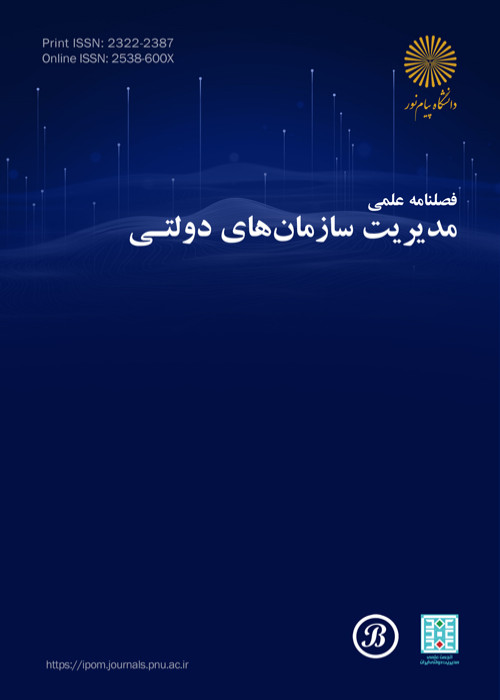Governal-Historical Implications of the Subject of "Structure" and "Organization" in the Iranian-Islamic Review
In interdisciplinary research, all disciplines, including the humanities and social sciences, "borrow" some concepts and theories from other disciplines and fields. Many studies of organization and management have used fundamental fields such as psychology, sociology, and history, and a large part of innovation in social sciences and behavioral sciences, such as management, is due to the inclusion of ideas in other disciplines, which is the manifestation of "implication research The present study is an independent report on the issue of "structure" and "organization" from the governance perspective and in a historical review. This report provides an overview of this concept in the limited governal- historical periods of Iran's history in the seventy-thousand-year-old civilization. Given that the concept of "structure" is relatively new, in such a review, the inspiring propositions and implications referred to it have been extracted. The findings of this study naturally focus on concepts such as "court", "organizations", "administrative system", and "system of government". Some historical and thematic implications studied in the twelve periods are the period of early civilizations (Hammurabi laws, sheiks council), the Median civilization (Satrapy Base, Royal Ordinances), the Achaemenid kingdom (Seven privileged lineages, Four commanders), Sassanids (Dabiran, Dabirbod), organization of the Holy Prophet (PBUH) and Amir-al-Mo'menin (AS) (Taratib-ol Edariyah, Valys, and Amirs), Sadr of Islam (Beyt-ol-Maal Department, Barid court), Abbasid governments (caliphs, courtiers), Seljuks (model of bureaucracy, Arz Court), Post-Mongol (Daroughchi, Basghagh), Safavid Dynasty (Workers and guilds, government houses, hereditary positions, and Qazalbashans), Qajar (Brokerage, Khamsa offices, ministries, and administrative staff), and post-constitutional (Executive organizations, the law of formations, Nepotism, and the principle of separation of powers).
- حق عضویت دریافتی صرف حمایت از نشریات عضو و نگهداری، تکمیل و توسعه مگیران میشود.
- پرداخت حق اشتراک و دانلود مقالات اجازه بازنشر آن در سایر رسانههای چاپی و دیجیتال را به کاربر نمیدهد.



